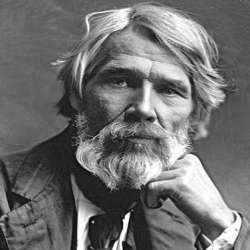
Thomas Carlyle
Scottish Essayist and Historian
| Date of Birth | : | 04 Dec, 1795 |
| Date of Death | : | 05 Feb, 1881 |
| Place of Birth | : | Ecclefechan, United Kingdom |
| Profession | : | Historian, Translator, Novelist |
| Nationality | : | Scottish |
Thomas Carlyle was a Scottish essayist, historian, and philosopher. Known as the "sage of Chelsea", his writings strongly influenced the intellectual and artistic culture of the Victorian era.
Carlyle was born in Ecclefechan, a village in Dumfriesshire. He attended the University of Edinburgh where he excelled in mathematics and invented the Carlyle circle. After finishing the arts course, he prepared to become a minister in the Burgher Church while working as a schoolmaster. He quit these and several other endeavours before settling on literature, writing for the Edinburgh Encyclopædia and working as a translator. He initially gained prominence in English-language literary circles for his extensive writing on German Romantic literature and philosophy. These themes were explored in his first major work, a semi-autobiographical philosophical novel entitled Sartor Resartus (1833–34).
Carlyle eventually relocated to London, where he published The French Revolution: A History (1837). Its popular success made him a celebrity, prompting the collection and reissue of his earlier essays under the title of Miscellanies. His subsequent works were highly regarded throughout Europe and North America, including On Heroes (1841), Past and Present (1843), Cromwell's Letters (1845), Latter-Day Pamphlets (1850), and Frederick the Great (1858–65). He founded the London Library, helped establish the National Portrait Galleries in London and in Edinburgh, became Lord Rector of the University of Edinburgh in 1865, and received the Pour le Mérite in 1874 among other honours.
Carlyle occupied a central position in Victorian culture, being considered the "undoubted head of English letters" and a "secular prophet". Posthumously, a series of publications by his friend James Anthony Froude damaged Carlyle's reputation, provoking controversy about his personal life and his marriage to Jane Welsh Carlyle in particular. His reputation further declined in the aftermaths of World War I and World War II, when his philosophy was seen as a precursor of both Prussianism and fascism. Growing scholarship in the field of Carlyle studies since the 1950s has improved his standing, and though little-read today, he is yet recognised as "one of the enduring monuments of English literature".
Quotes
Total 25 Quotes
For every one hundred men who can stand adversity there is only one who can withstand prosperity.
The real use of gunpowder is to make all men tall.
The past is always attractive because it is drained of fear.
I do not believe in the collective wisdom of individual ignorance.
A great man shows his greatness by the way he treats little men.
A person with a clear purpose will make progress, even on the roughest road. A person with no purpose will make no progress, even on the smoothest road.
Do not be embarrassed by your mistakes. Nothing can teach us better than our understanding of them. This is one of the best ways of self-education.
He who has health, has hope; and he who has hope, has everything.
Show me the man you honor, and I will know what kind of man you are.
Not what you possess but what you do with what you have, determines your true worth.
